Keynote Speakers
Keynote Speakers (Alphabetize by Last Name)
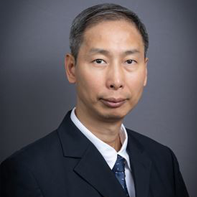
Prof. Lap-Pui Chau, IEEE Fellow
The Hong Kong Polytechnic University, Hong Kong, China
Speech title: Recent technologies in egocentric computer vision
The Hong Kong Polytechnic University, Hong Kong, China
Speech title: Recent technologies in egocentric computer vision
Short Bio: Lap-Pui Chau received the Ph.D. degree from The Hong Kong Polytechnic University 1997. He was with School of Electrical and Electronic Engineering, Nanyang Technological University from 1997 to 2022. He is currently a Professor in the Department of Electronic and Information Engineering, The Hong Kong Polytechnic University. His research interests include machine learning, computer vision, and image & video analytics. He is an IEEE Fellow. He was the chair of Technical Committee on Circuits & Systems for Communications of IEEE Circuits and Systems Society from 2010 to 2012. He was general chairs and program chairs for some international conferences. Besides, he served as associate editors for several IEEE journals and Distinguished Lecturer for IEEE BTS.
Abstract: Egocentric computer vision centers on capturing and interpreting the world from a first-person perspective. In this talk, we'll explore how this perspective enables scene understanding, offering powerful capabilities for activity recognition, such as identifying tasks like cooking or repairing, detecting the objects a user is interacting with or observing, and analyzing human-object interactions.
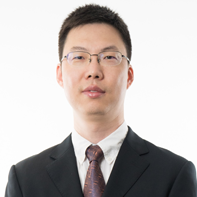
Prof. Guoqiang Hu
Nanyang Technological University, Singapore
Speech Title: Human-Robot Collaboration via Optimization
Nanyang Technological University, Singapore
Speech Title: Human-Robot Collaboration via Optimization
Short Bio: Guoqiang Hu is a Professor of Intelligent Systems and Robotics in the School of Electrical and Electronic Engineering at Nanyang Technological University, Singapore. He received Ph.D. in Nonlinear Control and Robotics from University of Florida. His research interests include optimization and control, game theory, and AI algorithms, with applications to human-robot collaboration, collaborative robots, and multi-robot systems. He serves/served as Associate Editor for IEEE Transactions on Automatic Control (2019-2025) and Automatica (2025-2028), Technical Editor for IEEE/ASME Transactions on Mechatronics (2017-2020), and Associate Editor for IEEE Transactions on Automation Science and Engineering (2017-2020). He also served as Program Chair/Co-Chair for IEEE ICCA 2016, IEEE IECON 2020 and IEEE CDC 2023, and General Chair for ICARCV 2018 and IEEE ICCA 2020. He has published 1 book and 300+ referred papers in journals and conferences, with Google Scholar Citations 15000+ and H-Index 68. He was a recipient of several awards, including the Best Paper in Automation Award in the 14th IEEE International Conference on Information and Automation, the Best Paper Award in the 36th Chinese Control Conference, and the Best Paper Award in the 4th Asia Pacific Conference of the Prognostics and Health Management Society.
Abstract: Human-robot collaboration (HRC) has emerged as a cornerstone for the next generation of intelligent manufacturing, service robotics, and human-centric automation. Unlike traditional industrial robots confined to isolated tasks, collaborative robots must share workspace, goals, and decision-making processes with humans, requiring real-time safety, adaptability, and efficiency. One of the challenges for multi-robot systems and human-robot systems is the design of effective algorithms that enable the robots to work cooperatively and safely with other robots or humans. Optimization provides a unifying mathematical framework to formalize these challenges. This talk will first give a brief review on human-robot collaboration, and then present some recent related research results.
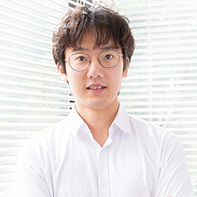
Asst. Prof. Chao Huang
University of Hong Kong, Hong Kong, China
Speech title: AI Agents: The Next Financer, Artist, Engineer, and Scientist?
University of Hong Kong, Hong Kong, China
Speech title: AI Agents: The Next Financer, Artist, Engineer, and Scientist?
Short Bio: Chao Huang is an Assistant Professor at the Department of Computer Science at the University of Hong Kong (HKU). His research focuses on developing novel machine learning frameworks to tackle various challenges in Data Mining, Information Retrieval, Spatial-Temporal Data Analytics, User Behavior Modeling, Recommendation, Graph Mining, and Deep Representation Learning. Prior to that, he received his Ph.D. in Computer Science from the University of Notre Dame in USA.
Abstract: This talk explores the exciting potential of AI to take on roles as Financer, Artist, Engineer, and Scientist, while examining where these capabilities reach their limits. We look at the evolution from LLMs to powerful autonomous AI agents, addressing key technical challenges including multi-step reasoning, tool integration, multi-modal context understanding, and massive information processing. Through practical insights and real-world case studies, we discover how AI agents are transforming traditional workflows and creating new opportunities for effective human-AI collaboration across these important fields.
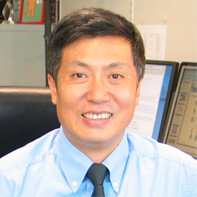
Prof. Weijia Jia, Chair Professor, IEEE Fellow
Beijing Normal University, (BNU-Zhuhai), China
Speech Title: Edge AI-LLM Collaborative Applications
Beijing Normal University, (BNU-Zhuhai), China
Speech Title: Edge AI-LLM Collaborative Applications
Short Bio: Professor Weijia Jia (Member of National Academy of Artificial Intelligence-NAAI, IEEE Fellow) is currently the Director of Institute of Artificial Intelligence and Future Networking, and the Director of Super Intelligent Computer Center, Beijing Normal University (BNU, Zhuhai); also a Chair Professor at BNBU(original UIC), Zhuhai, Guangdong, China. He has served as the VP for Research at UIC in 6/2020-7/2024. Prior joining BNU, he served as the Deputy Director of State Kay Laboratory of Internet of Things for Smart City at the University of Macau and Zhiyuan Chair Professor at Shanghai Jiaotong University, PR China. He received BSc/MSc from Center South University, China in 82/84 and PhD from Polytechnic Faculty of Mons, Belgium in 93, respectively; all in computer science. For 93-95, he joined German National Research Center for Information Science (GMD) in Bonn (St. Augustine) as a research fellow. From 95-13, he worked in City University of Hong Kong as a professor. His contributions have been recoganized for the research of edge AI, optimal network routing and deployment; vertex cover; anycast and multicast protocols; sensors networking; knowledge relation extractions; NLP and intelligent edge computing. He has over 700 publications in the prestige international journals/conferences and research books and book chapters. He has received the best product awards from the International Science & Tech. Expo (Shenzhen) in 2011/2012 and the 1st Prize of Scientific Research Awards from the Ministry of Education of China in 2017 (list 2), 1st Prize of Shanghai Science and Technology Award (2025, list 4) and top 2% World Scientists in Stanford-list (2020-2025) and many provincial science and tech awards. He has served as area editor for various prestige international journals, chair and PC member/keynote speaker for many top international conferences. He is the member of the National Academy of Artificial Intelligence (NAAI), Fellow of IEEE and the Distinguished Member of CCF.
Abstract: Large Language Models (LLMs) are widely used across various domains, but deploying them in cloud data centers often leads to significant response delays and high costs, undermining Quality of Service (QoS) at the network edge. Although caching LLM request results at the edge using vector databases can greatly reduce response times and costs for similar requests, this approach has been overlooked in prior research. To address this, we propose a novel non-invasive RAG approach called Vector database-assisted Cloud-Edge collaborative LLM QoS optimization system that caches LLM request results at the edge using vector databases, thereby reducing response times for subsequent similar requests. Unlike methods that modify LLMs directly, our system leaves the LLM's internal structure intact and is applicable to various LLMs. Building on the system, we formulate the QoS optimization problem as a Markov Decision Process and design an algorithm based on Multi-Agent Reinforcement Learning. Our algorithm employs a diffusion-based policy network to extract the LLM request features, determining whether to request the LLM in the cloud or retrieve results from the edge's vector database. Implemented in a real edge system, our experimental results demonstrate that our system significantly enhances user satisfaction by simultaneously reducing delays and resource consumption for edge users of LLMs. We further explore the non-invasive RAG approach to the intelligent applications of real estate by introducing a system RETQA, the first large-scale open-domain Chinese Tabular Question Answering dataset for Real Estate market. We finally briefly introduce our new In-Context learning algorithm that balances the diversity and similarity of semantics for resource constraints of edges.
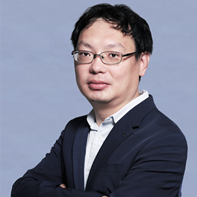
Prof. Ping Li
The Hong Kong Polytechnic University, Hong Kong, China
Speech title: Computational Art and Creative Media
The Hong Kong Polytechnic University, Hong Kong, China
Speech title: Computational Art and Creative Media
Short Bio: Dr. Ping LI, National Distinguished Young Expert, is currently an Assistant Professor with the Department of Computing and an Assistant Professor with the School of Design, The Hong Kong Polytechnic University, Kowloon, Hong Kong. Prior to that, he was an Assistant Professor at the Macau University of Science and Technology, Taipa, Macau, and a Lecturer at The Education University of Hong Kong, Tai Po, Hong Kong.
Dr. Li received his Ph.D. degree in CSE from The Chinese University of Hong Kong, Shatin, Hong Kong.
He has published over 150 top-tier vision and graphics papers refereed, including IEEE TVCG, TIP, TNNLS, TMI, TMM, TCSVT, TCYB, TBME, TSMC, TII, CVPR, NeurIPS, AAAI, ACM SIGGRAPH VRCAI. He has an excellent Creative Media project reported worldwide by Science News Line, ScienceWeek, Science Bulletin, EurekAlert!, ACM TechNews, etc.
His current research interests are computer vision and creative media, including image/video stylization, colorization, artistic rendering and synthesis, computational art, interactive design, big data visualization, human-computer interaction, 2D/3D animation, GPU acceleration, virtual and augmented reality.
Abstract: Computational art as an expressive way for producing user-desired appearances has received much attention in creative media and AIGC research. In interactive design, it would be very powerful to render the specially stylized presentation of interested objects virtually using artificial-intelligence-aided design tools for artistic effects rendering and creative media synthesis. However, existing special effects and artistic synthesis approaches focus generally on artistic modelling in the fields of color space and rarely consider the artistic nature and rich detailed structure design of the input visual media, which unavoidably leads to the loss of key information for understanding. In this talk, we will consider perceptual computational art and creative media synthesis, focusing on the efficient generation, perception, rendering of creative media and art, and their exploration in AIGC. In the future, we will further extend the artistic rending and synthesis to more complicated visual applications and creative scenes. We will also work on special effects synthesis by the inspiration of latest real-time 2D/3D vision and graphics learning approaches.

Prof. Hugo Wai Leung MAK
The Chinese University of Hong Kong & The Hong Kong University of Science and Technology, Hong Kong, China
Speech Title: Synergy of Modeling, Remote Sensing and Data Analytic Approaches in Environmental Retrievals
The Chinese University of Hong Kong & The Hong Kong University of Science and Technology, Hong Kong, China
Speech Title: Synergy of Modeling, Remote Sensing and Data Analytic Approaches in Environmental Retrievals
Short Bio: Hugo Wai Leung MAK obtained his B.Sc. Degree in Mathematics and Physics (with minor in Liberal Studies), then his Ph.D. in Mathematics (Scientific Computation concentration). He is now a Visiting Faculty at HKUST, a Lecturer at CUHK, and a Junior Fellow of The Academy of Education Excellence (AEE). His research interests include Computational Mathematics and Data Science, Remote Sensing, and the use of statistical algorithms in Environmental Retrieval and Sustainable City Development. He serves as a guest editor and committee member of journals, conferences and education events, and has participated in international satellite missions like GEMS and CINDI-3. Some of his highlighted honors include: The 14th Epsilon Fund Award (2019); School of Science Postgraduate Research Excellence Award, HKUST (2019); Young Scientist of Hong Kong Laureate Forum (2023 & 2025); Remote Sensing Outstanding Reviewer Award (2024); Internationalisation Faculty Mobility Scheme Award (2024-25); Institute of Mathematical Statistics Researcher Travel Award (2025). He is working with top institutions and industrial partners to address real-world concerns with the aid of computational frameworks and technologies.
Abstract: Air pollution is a global pressing environmental risk in recent decades, and is connected with many Sustainable Development Goals (SDGs) due to its non-orthogonality and health impacts. This talk will explore how various high-resolution satellite products, scientific models and data analytic approaches can be effectively synergized to build-up a multi-step algorithmic framework, for retrieving spatial maps and temporal trends of tropospheric column densities and ground level pollutant concentrations within prescribed spatial domains. Optimized machine learning and numerical methods for relevant retrieval and prediction tasks were identified from statistical assessments in relevant case studies. Through combining with The Geostationary Environment Monitoring Spectrometer (GEMS) from South Korea, temporal and spatial distributions of pollutants and hotspots can be more effectively allocated. The talk will also explore how NO2 column density is associated with XCO2 anomaly in recent years, so that regions where CO2 emissions co-occur with NOx pollution can be identified. All these exhibit great potential in building analytical bridges across disciplines and sectors, and lay down some room for improvement in terms of data synergy and citizen science.
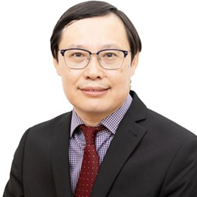
Assoc. Prof. Kezhi Mao
Nanyang Technological University, Singapore
Speech title: Rethinking Prompt Optimizers: From Prompt Merits to Optimization
Nanyang Technological University, Singapore
Speech title: Rethinking Prompt Optimizers: From Prompt Merits to Optimization
Short Bio: Dr. Mao obtained his BEng, MEng and PhD from Jinan University, Northeastern University, and University of Sheffield, respectively. Since obtaining his PhD, he has been working at School of Electrical and Electronic Engineering, Nanyang Technological University, Singapore, where he is an Associate Professor. Dr. Mao's expertise spans several subfields of artificial intelligence (AI), including machine learning, computer vision (CV), natural language processing (NLP), and information fusion. In recent years, he has directed his research focus toward the dynamic and transformative domain of NLP such as large language models (LLM).
He has been ranked among the Stanford-Elsevier World's Top 2% Scientists in both career-long and single-year categories from 2020 to 2025. He is placed within the top 0.5% globally in the field of AI & Image Processing.
Abstract: Prompt optimization is a vital tool for users who lack the time or skill to hand-craft perfect inputs, but current methods have a blind spot. They mostly rely on advanced LLMs to rewrite prompts, resulting in complex, instruction-heavy outputs. While these work for big models, they often overwhelm lightweight models and lack transparency. We propose a different approach: MePO. Instead of black-box optimization, we first identified specific, model-agnostic 'merits' that objectively improve prompt quality. We then trained MePO-a locally deployable optimizer-to apply these principles. Because it focuses on explicit, interpretable design rather than implicit complexity, MePO protects user privacy and works consistently across both large-scale and lightweight inference models.
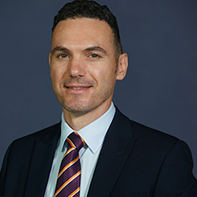
The Chinese University of Hong Kong, Hong Kong(Shenzhen), China
Speech title: The Fundamental Over-Attribution Error: Anthropomorphic AI and Its Ethical Implications
Short Bio: Manuele Reani is an Assistant Professor of Information Systems at The Chinese University of Hong Kong, Shenzhen and a visiting lecturer at The University of Manchester. Before joining the CUHK, Shenzhen, he was a Postdoctoral Research Associate at The University of Manchester, working on an Alan Turing Institute project in health data science.
He obtained a PhD from The University of Manchester and an MSc in Management Science from the London School of Economics (LSE). His PhD research focused on Human-computer Interaction and behavioural decision making. He worked on two projects at The Hong Kong University of Science and Technology (HKUST), in the HCI lab at the Department of Computer Science and Engineering (CSE). He obtained the certificate from the Big Data Analytics Summer School at The University of Essex. He obtained a mini-MBA from The University of London (Birkbeck). He has been a reviewer for journals in computer science and psychology and his papers have been published in prestigious computer science and psychology journals. His research interests are human-computer interaction, data science, decision making, behavioural economics, cognitive science and the application of data analytics to study human behaviour.
Abstract: Anthropomorphic and emotionalized design is increasingly adopted in AI systems to improve usability, engagement, and acceptance. While such a design can enhance interaction quality, it may also distort users' trust and risk perception, particularly in high-stakes decision-support contexts. This paper examines the cognitive and ethical implications of anthropomorphic AI through the lens of the Fundamental Over-Attribution Error (FOE)-a newly defined bias in which users overattribute stable, human-like cognitive capacities and intentions to AI systems. Drawing on prior work on anthropomorphic decision-support AI, trust calibration, and emotionalized AI, we discuss how anthropomorphic designs can inflate trust, suppress perceived risk, and foster unhealthy reliance. In this paper, we define FOE and provide some explicit examples in human-AI interaction. We argue that FOE provides a unifying explanation for some effects, extending beyond surface anthropomorphism to persistent misattributions of competence, understanding, and intentions. Finally, we discuss implications for ethics and responsible AI, emphasizing the need for design strategies that align perceived system competence with actual capabilities and support calibrated trust rather than confidence inflation.
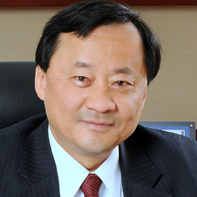
Prof. Benjamin W. Wah, IEEE Life Fellow, ACM Fellow, AAAS Fellow
Research Professor of Computer Science and Engineering, Provost Emeritus, CUHK
Chinese University of Hong Kong, Hong Kong, China
Speech Title: Perceptual Quality in Online Real-Time Multimedia: An AI Approach
Research Professor of Computer Science and Engineering, Provost Emeritus, CUHK
Chinese University of Hong Kong, Hong Kong, China
Speech Title: Perceptual Quality in Online Real-Time Multimedia: An AI Approach
Short Bio: Benjamin W. Wah, BBS, JP, is Professor Emeritus at The Chinese University of Hong Kong (CUHK) and Franklin W. Woeltge Professor Emeritus of Electrical and Computer Engineering at the University of Illinois at Urbana-Champaign (UIUC). He previously served as Provost and Wei Lun Professor of Computer Science and Engineering at CUHK. He held joint appointments as the Franklin W. Woeltge Endowed Professor of Electrical and Computer Engineering and Professor at the Coordinated Science Laboratory at UIUC. Professor Wah received his Ph.D. in Computer Science from the University of California, Berkeley. His research spans nonlinear search and optimization, multimedia technologies, and artificial intelligence. He has received numerous prestigious awards for his contributions to research and professional service, including the IEEE Computer Society W. Wallace McDowell Award (2006), Richard E. Merwin Award (2007), Tsutomu Kanai Award (2009), the Distinguished Alumni Award in Computer Science from UC Berkeley (2011), and the Bronze Bauhinia Star from the Hong Kong SAR Government (2021). A pioneer in scholarly publishing, Professor Wah co-founded the IEEE Transactions on Knowledge and Data Engineering in 1988 and served as its Editor-in-Chief from 1993 to 1996. He is currently Co-Editor-in-Chief of Computers and Education: Artificial Intelligence and Honorary Editor-in-Chief of Knowledge and Information Systems. His leadership within the IEEE Computer Society includes serving as Vice President for Publications (1998-1999) and President (2001). Professor Wah is a Fellow of the AAAS and ACM, and a Life Fellow of the IEEE.
Abstract: With the rapid advancement of multimedia technologies, a wide array of interactive online games and real-time multimedia applications (RIMAs) have emerged. However, user-perceived quality in these applications often suffers due to network delays, resulting in sluggish or unresponsive interactions. This presentation introduces a general framework for optimizing the perceptual quality of diverse online, real-time, interactive multimedia applications. We propose a machine learning-based offline-online framework that enables practical implementation and runtime optimization. In the offline stage, the framework decomposes complex multi-metric, multi-control problems into simpler subproblems, each evaluating perceptual quality based on a single metric and control variable. During the online stage, these learned models are integrated into a composite model that identifies optimal operating points, effectively overcoming the exponential complexity of direct optimization. To validate our approach, we present two case studies: two-party and multiparty videoconferencing, and multiparty online action games. Experimental results demonstrate significant improvements in perceptual quality, highlighting the effectiveness and generality of our solution.
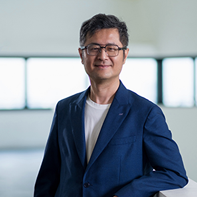
Prof. Shengdong Zhao
City University of Hong Kong, Hong Kong, China
Speech Title: Heads-Up Computing: Towards the Next Interaction Paradigm for
Wearable Intelligent Assistants
City University of Hong Kong, Hong Kong, China
Speech Title: Heads-Up Computing: Towards the Next Interaction Paradigm for Wearable Intelligent Assistants
Short Bio: Shengdong Zhao is a Professor in the School of Creative Media and
the Department of Computer Science at City University of Hong Kong. He
established and led the Synteraction (formerly NUS-HCI) research lab
in 2009 at the National University of Singapore. Prof. Zhao received
his Ph.D. in Computer Science from the University of Toronto and a
Master's degree in Information Management Systems from the University
of California, Berkeley.
With extensive experience in developing innovative interface tools and
applications, Prof. Zhao is a regular contributor to top-tier HCI
conferences and journals like CHI, ToCHI, Ubicomp/IMWUT, CSCW, UIST,
and IUI. He served as a senior consultant with Huawei Consumer
Business Group in 2017. An active member of the HCI community, Prof.
Zhao serves on program committees for major HCI conferences and was
the paper co-chair for ACM SIGCHI conference in 2019 and 2020, and is
the paper co-chair for ACM UIST conference in 2025.
Prof. Zhao introduced the concept of Heads-up Computing in 2017,
contributing to several key projects and publications in this area,
including a featured article on heads-up computing in the September
2023 issue of Communications of the ACM. His research aims to develop
innovative interface tools that enhance daily life through this new
interaction paradigm. For more information about his work, please
visit www.shengdongzhao.com.
Abstract: Heads-up computing, an emerging paradigm in human-computer
interaction (HCI), aims to create seamless interactions with
technology through wearable intelligent assistants. This vision relies
on three crucial components: (1) bodily compatible hardware, (2)
multimodal complementary interactions, and (3) interfaces that
accommodate fragmented attention and are aware of potential resources.
Recent advancements in large language models (LLMs) have significantly
accelerated progress in these areas, enabling more natural,
context-aware, and proactive systems. These developments are pushing
heads-up computing beyond simple notifications to complex, multi-modal
interactions that blend seamlessly with our environment and daily
activities, allowing for efficient information processing in everyday
life. However, as we integrate these AI-driven assistants more deeply
into our lives, we must carefully consider ethical implications such
as privacy and cognitive load. Balancing technological advancement
with human-centered principles is crucial to create systems that
enhance productivity while respecting user autonomy and well-being,
ultimately augmenting human capabilities without compromising
fundamental values.
Keynote Speakers in Past CEII
 Prof. ChingYee Suen, IEEE Fellow
Prof. ChingYee Suen, IEEE FellowConcordia University

The Chinese University of Hong Kong

City University of Hong Kong
 Prof. Ron Sun, IEEE Fellow
Prof. Ron Sun, IEEE FellowRensselaer Polytechnic Institute, USA
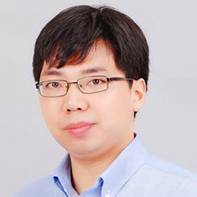
The University of Tokyo

Shenzhen Institue of Advanced Technology
 Prof. Minghua Cheng, IEEE Fellow
Prof. Minghua Cheng, IEEE FellowCity University of Hong Kong

Hong Kong University of Science and Technology, China

University of Missouri, USA
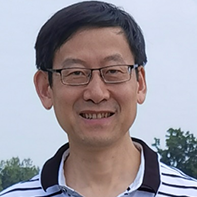 Prof. Kun Yang, IEEE Fellow
Prof. Kun Yang, IEEE FellowUniversity of Essex, UK

Hong Kong Shue Yan University, China

University of Leicester, UK